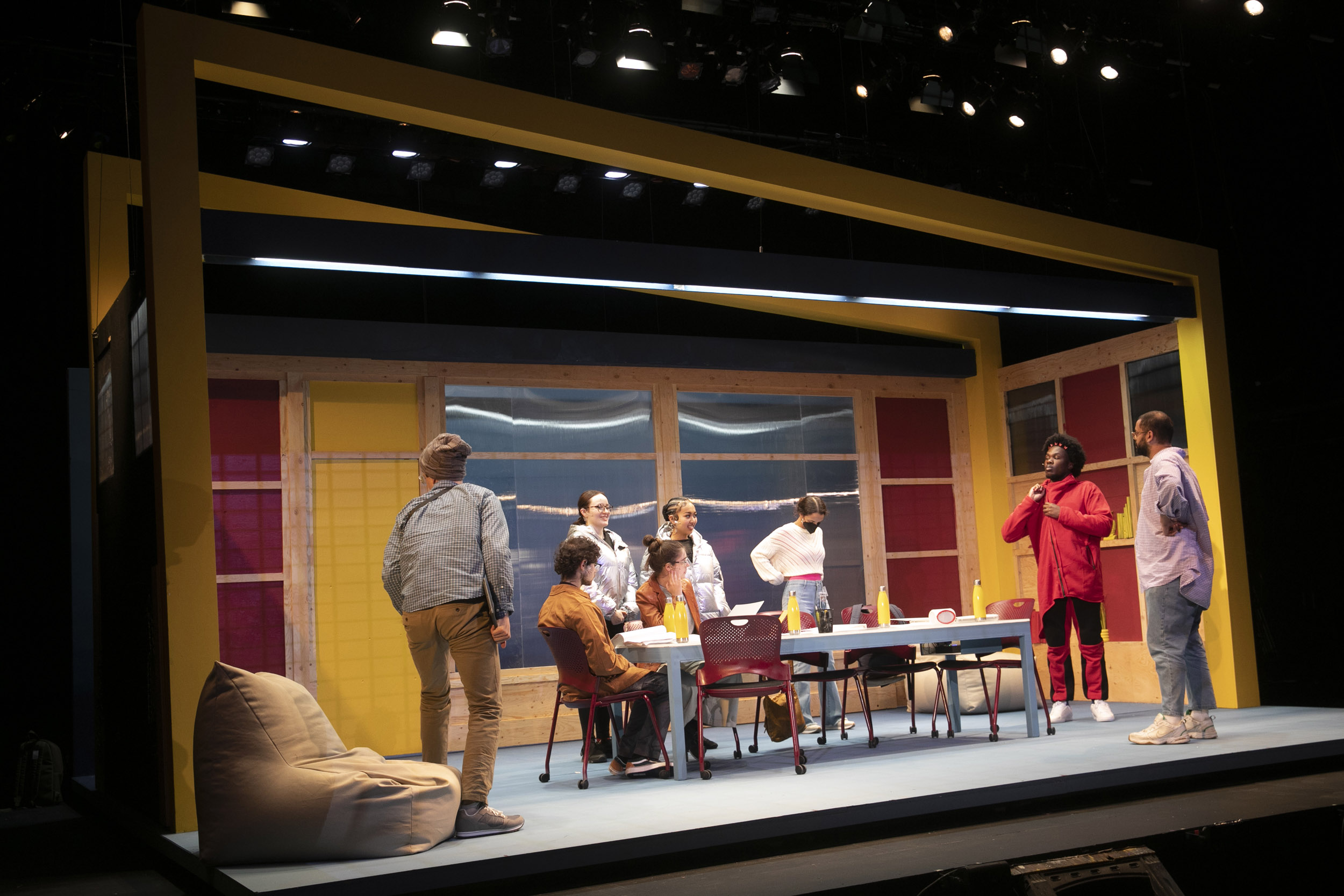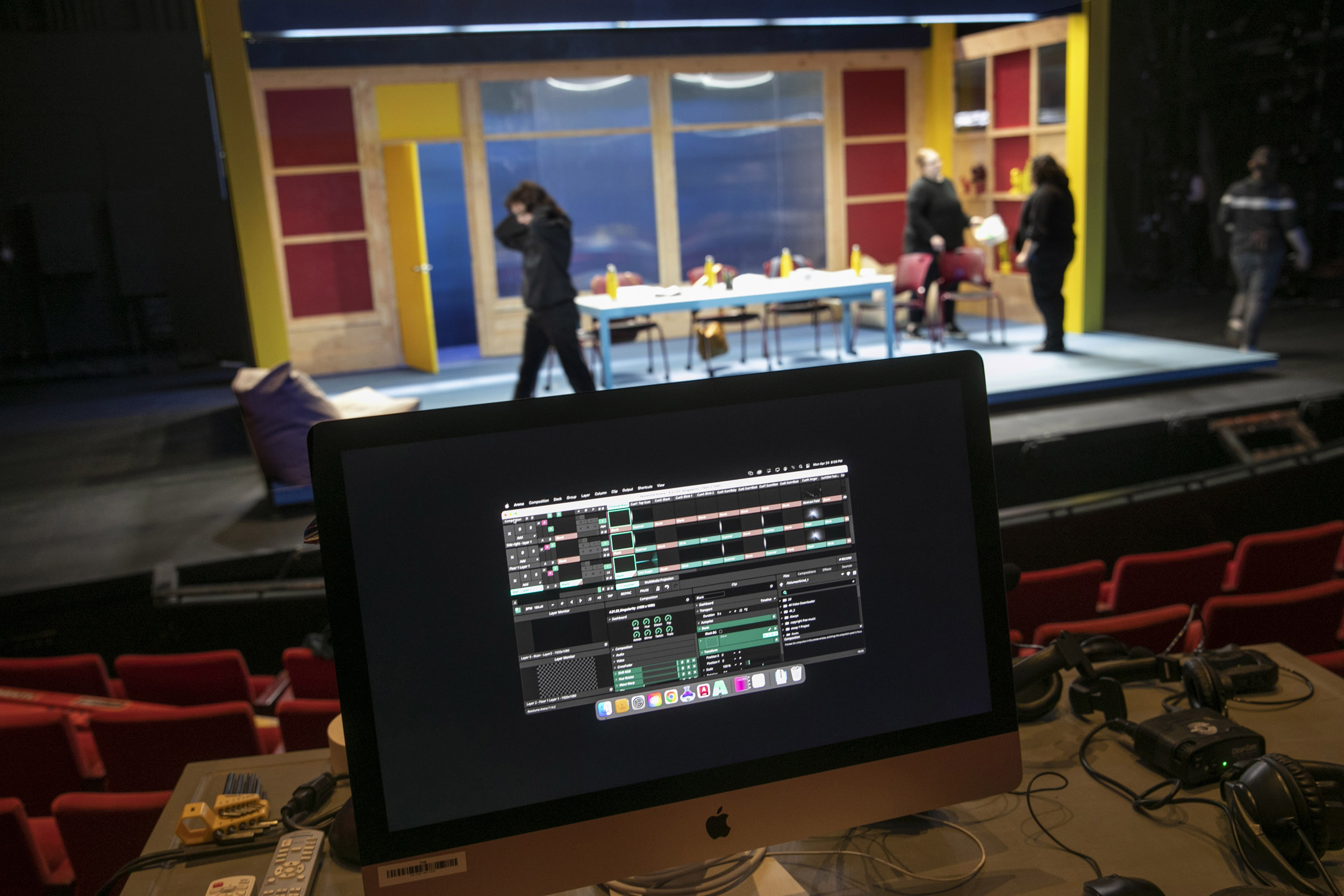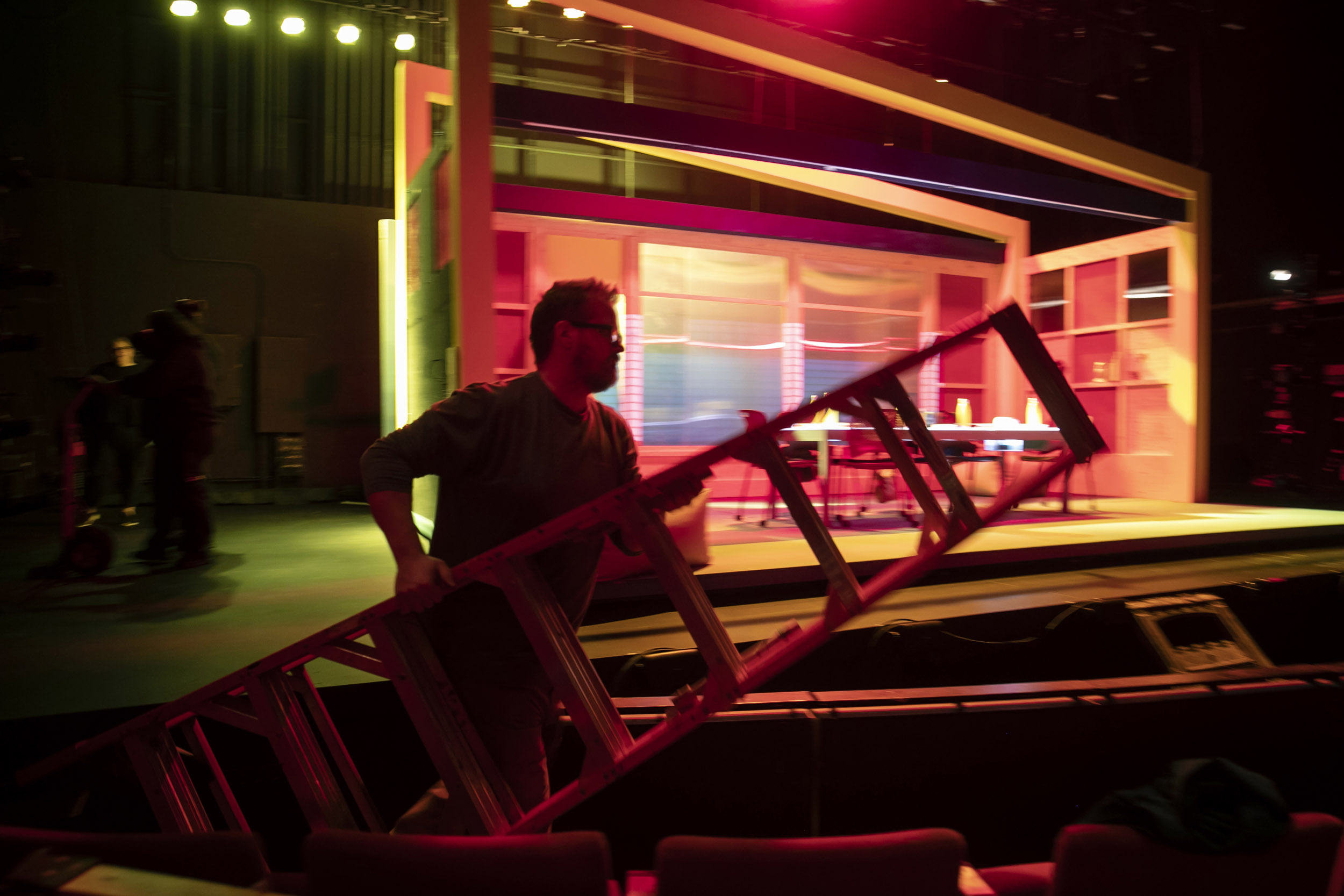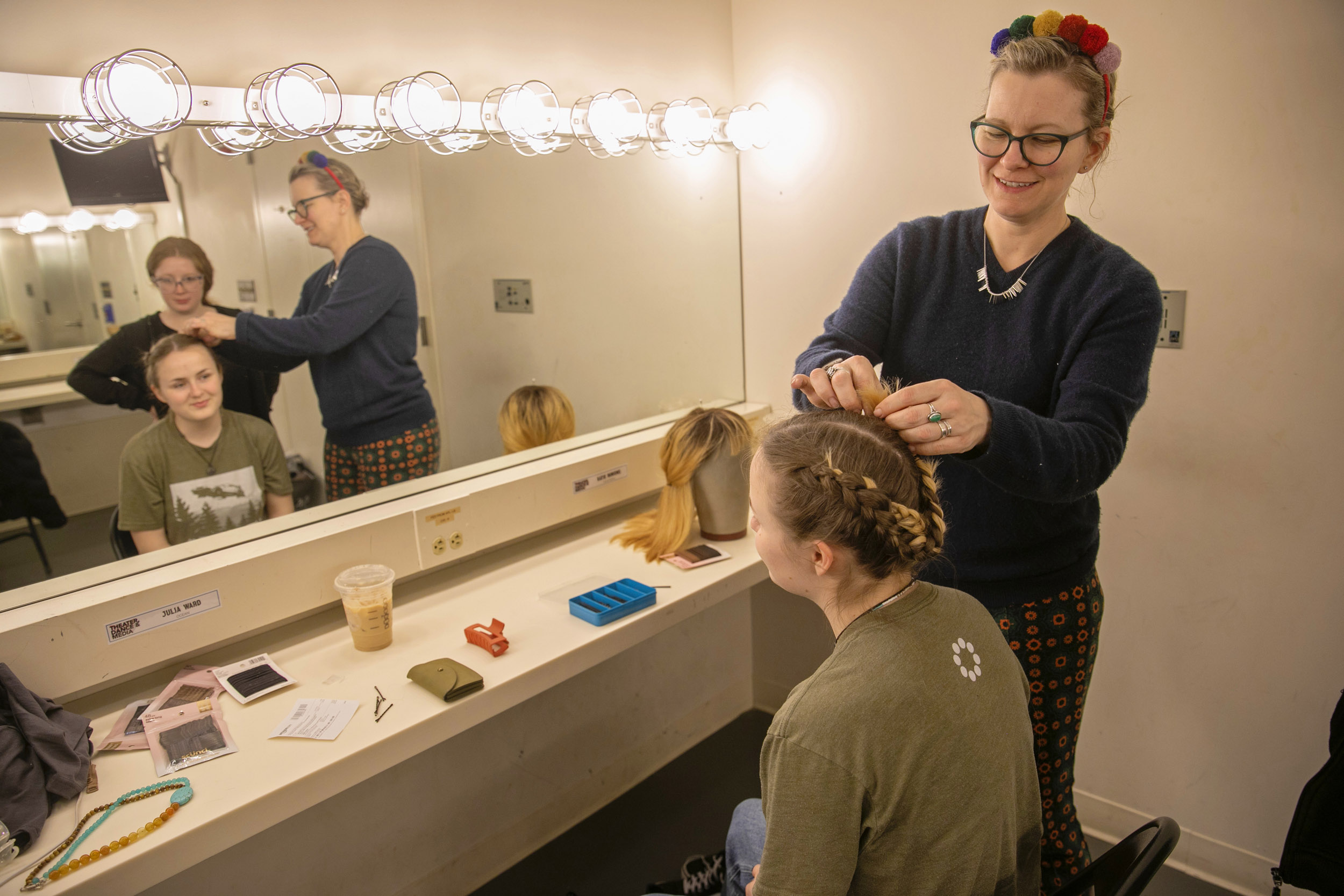
“The Singularity Play” will be staged for the first time in a five-show run during Arts First.
Photos by Jon Chase/Harvard Staff Photographer
What happens when computers take on one of ‘most human’ art forms?
New play for Arts First Festival examines relationship between technology, humanity, and theater
A theater troupe assembles at Google’s Manhattan office to develop and rehearse a play written by an artificial intelligence named Denise. The actors consider whether a human audience will be able relate to Denise’s work, as well as larger questions such as what makes art “good,” what makes art “human,” and who can make these judgments.
This is the premise of “The Singularity Play,” a play-within-a-play written by Jay Stull and directed by Keenan Tyler Oliphant. It will be staged for the first time in a five-show run during Harvard’s 2023 Arts First Festival with a cast of students from the Theater, Dance & Media program.
The Arts First Festival is Harvard’s annual, free public showcase of student, faculty, and Harvard-affiliate creativity, produced by the Office for the Arts. This year’s lineup features a vibrant array of concerts, shows, exhibits, and more.

Though the subject matter might feel somewhat dystopian, the creators say “The Singularity Play” is in many ways a comedy about rehearsal rooms and the personalities and power dynamics of group projects.
Stull said he wanted to explore what it would be like to have AI feature prominently in a play because theater is “the most human of the arts.”
“The primary instrument in theater is the embodied actor,” Stull said. “So I was very interested in what it meant to have an artist who is not human, traditionally speaking, work through an embodied medium that’s generally not mediated by technology.”
Stull and Oliphant are both visiting lecturers this semester and have been preparing the play with students in TDM’s production studio course.
Stull wrote “The Singularity Play” in 2019, when programs making headlines today, like ChatGPT, still felt like part of the distant future. He was in grad school at the time and became fascinated by Lil Miquela, a CGI-generated social media influencer created in 2016.
Stull did use some AI while writing “The Singularity Play.” A program called Hugging Face generated some lines used in one scene, in which Denise begins producing pages of text that seem “wrong” to her computer programmer.
Sophia Parker ’23, plays Heidi, one of the members of the theater troupe. The social studies concentrator said she enjoyed working with Stull and Oliphant and was excited to get a chance to take on a role in a work that deals with some intense themes, such as grief.


The play’s opening is set for Thursday at Farkas Hall. Costume designer Rachel Padula-Shufelt (standing) does a pre-rehearsal braiding of student Katie Runions’ hair.
“I was ready to tackle it,” Parker said, “And the environment that was created made it seem very natural to tackle that. I feel like both Keenan and Jay have done a good job of creating an environment where dealing with the intense subjects can be done in a realistic way that doesn’t leave you uncomfortable.”
Oliphant, who worked as an assistant director for “Hadestown” on Broadway, said “The Singularity Play” has only grown more relevant with time.
“We’ve fallen into this moment where the potential of this play happening outside of the play in a real-world setting is so high right now,” Oliphant said.
The play takes its name from a technology term referring to a hypothetical moment when AI becomes so advanced that it permanently alters humanity. In the material world, it’s not a reality that Stull particularly wants to see. He smiled ruefully when recalling an April Fool’s Day joke posted by American Theater Magazine this month, suggesting that a Silicon Valley company had commissioned an AI to write five plays.
“Playwrights are so threatened anyway. There are so many playwrights and so few opportunities,” Stull said. “It’s such a difficult thing to think that AI would be actually, legitimately taking these very few opportunities in an industry that’s difficult to find remuneration in.”
Oliphant emphasized that “The Singularity Play” is not an attempt to capitalize on the current moment of pitting technology against humanity, but rather to pose some questions about the relationship between the two.
“My hope is that people walk out considering what humanity’s relationship to creation is,” Oliphant said. “I hope the question lingers with the audience as we continue to grapple with the ever-changing social, political, natural world that we are in right now.”
“The Singularity Play” runs from Thursday through Sunday at Farkas Hall in Cambridge.




